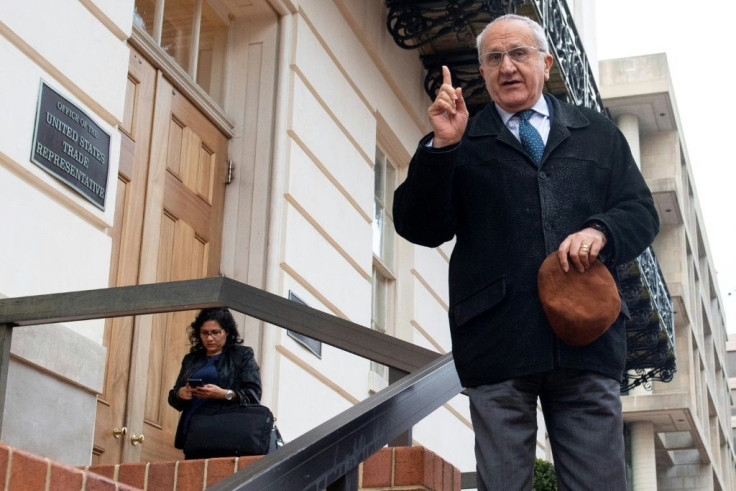Lighthizer’s New Demand Threatens To Delay USMCA Deal, As Mexico Balks

U.S. Trade Representative Robert Lighthizer has angered Mexico during talks to hammer out a United States-Mexico-Canada free trade agreement by renewing a demand to tighten the definition of what qualifies as North American steel and aluminum.
POLITICO reported Lighthizer’s request is designed to ensure that the metals are melted and poured within the three countries – rather than just being finished there – to fulfill a requirement of the agreement.
The latest demand came after various other disputes that have emerged and which threaten to delay passage of the trade pact. Lighthizer is reportedly seeking to woo U.S. labor unions and, ultimately, congressional Democrats.
The U.S., Mexico and Canada have already agreed to require carmakers to buy 70% of the steel and aluminum they use from North American sources. However, U.S. labor unions have said that the language of the pact does not explicitly include the “melted and poured” requirement.
As the pact is currently written, U.S. officials fear, automakers could, for example, use steel and aluminum made from steel slabs and semi-finished aluminum imported from China and elsewhere.
Labor Advisory Committee for Trade Negotiations and Trade Policy of the Office of the U.S. Trade Representative warned the agreement, as currently written, would create “few U.S. jobs.”
The Mexican industry confederation Concamin criticized the proposal as “completely unacceptable” in a letter sent to Mexican Undersecretary for North America Jesús Seade, a senior trade official, who was in Washington this week for talks with Lighthizer.
Concamin warned the measure would cut down competitiveness and that Mexican companies to counld not abide by it.
If these changes are to be implemented, the letter said, “there will be no Mexican companies able to supply inputs to the automotive supply chain, meaning it would leave the industry in the hands of the American steel and aluminum sectors.”
Rep. Henry Cuellar, D-Texass, told reporters on Thursday: “There was a new issue that got brought up and the Mexicans said, 'We’re not going to touch this issue.'"
On Wednesday, House Democrats urged Mexico to accept a compromise on another contentious issue, the enforcement of stricter labor standards, in Mexico. Regarding this matter Seade said bringing in U.S. inspectors to watch Mexican factories was not acceptable.
Rep. Jimmy Gomez, D-Calif., said House Speaker Nancy Pelosi and Lighthizer offered Mexico a compromise on labor enforcement.
“If they want a deal, it is ripe now,” Gomez said. “It’s a good deal. That’s my message to the Mexicans and that’s my message to Democrats.”
Mexican President Andrés Manuel López Obrador said his country has changed its labor laws to satisfy new provisions of the trade pact and has allocated funds in the budget to guarantee enforcement of the new labor laws.
© Copyright IBTimes 2024. All rights reserved.





















